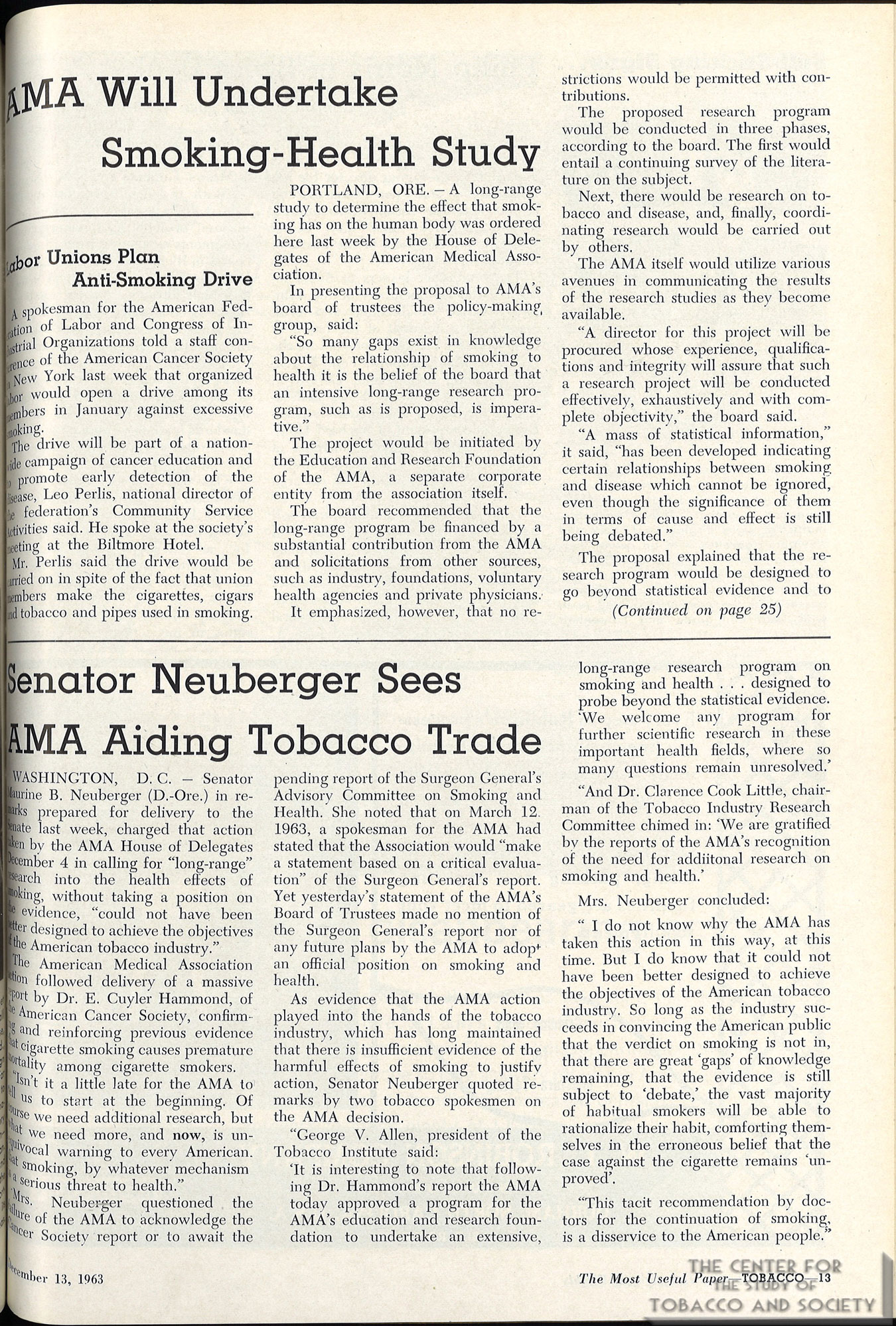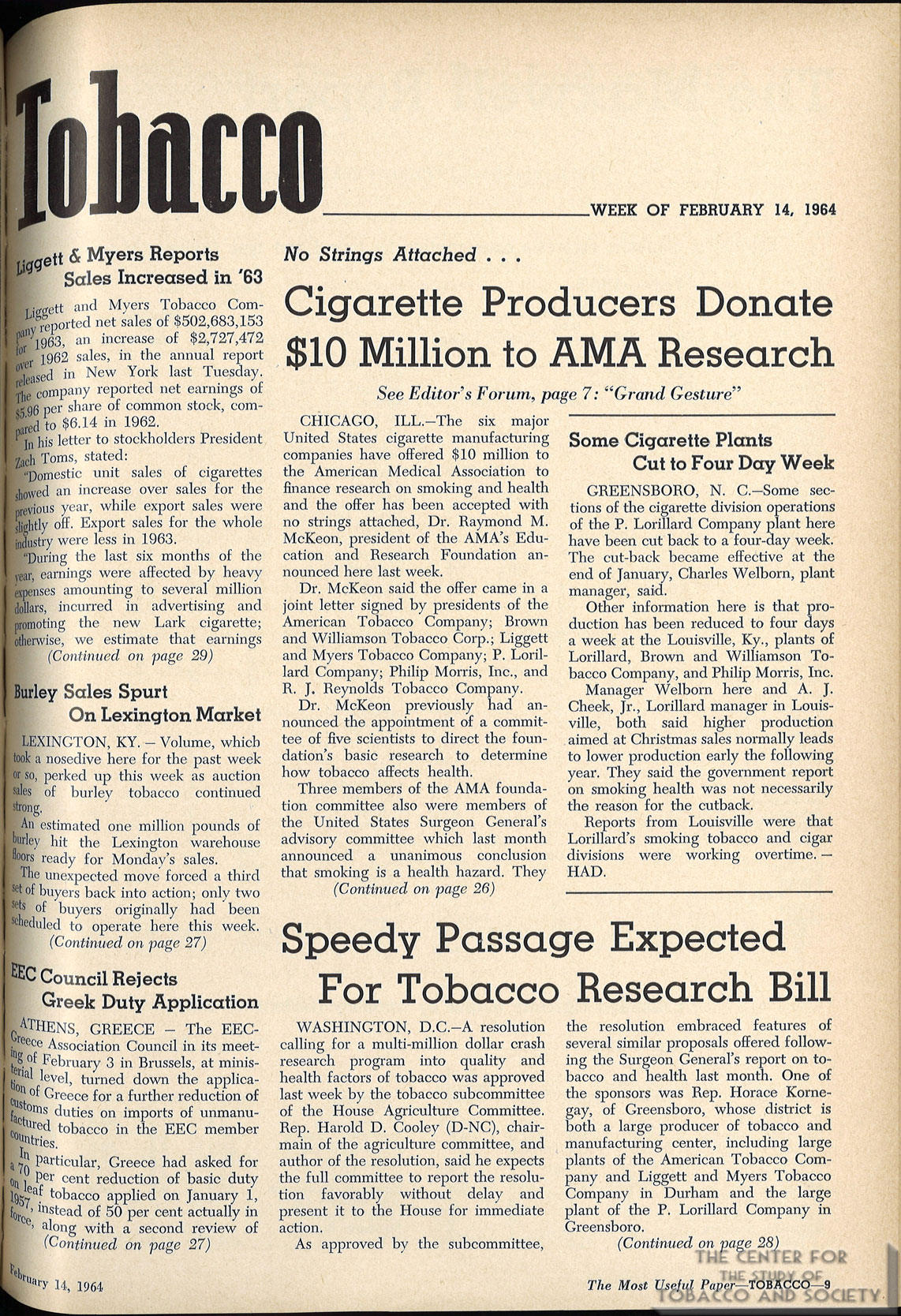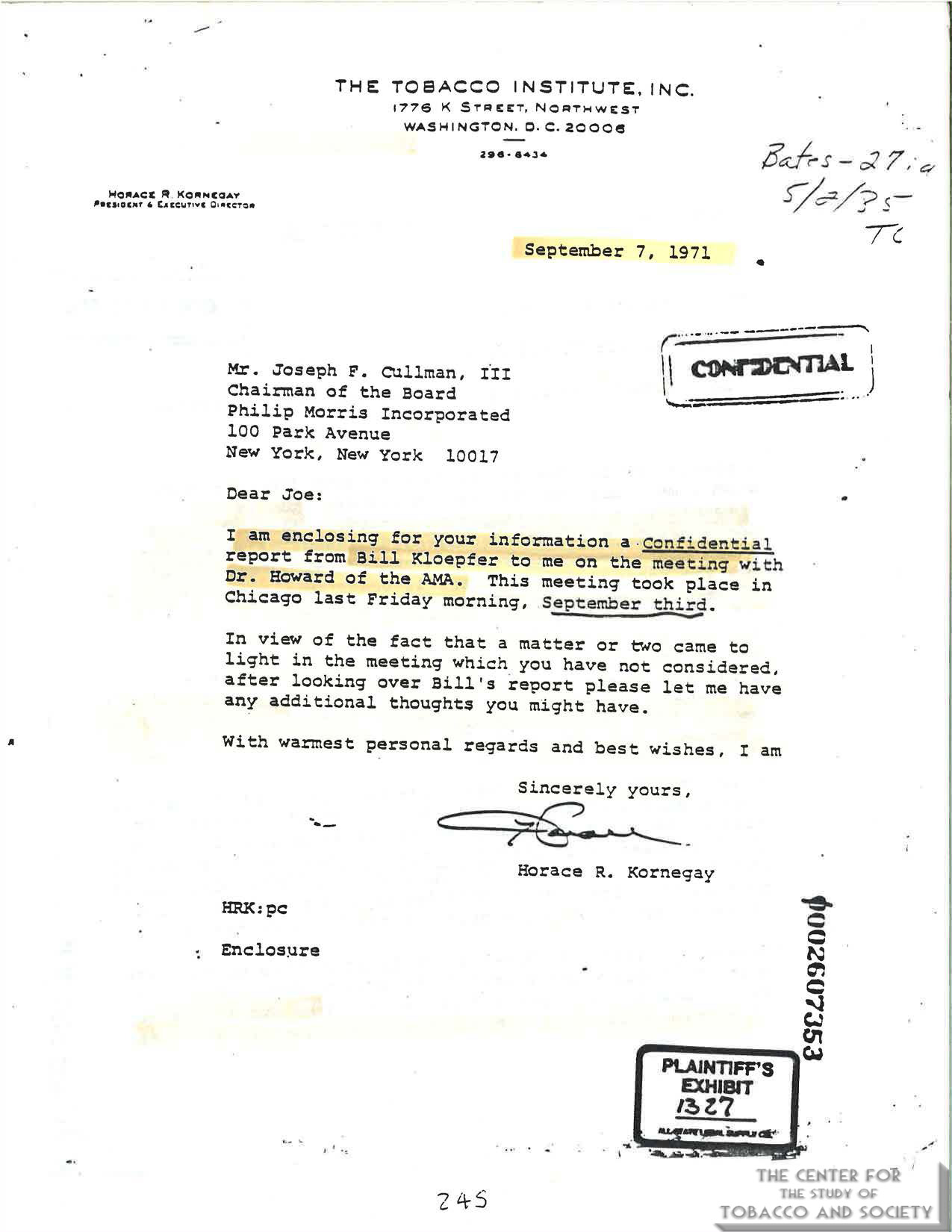“AMA Will Undertake Smoking-Health Study”
“Senator Neuberger Sees AMA Aiding Tobacco Trade” (2 pages)
News articles
Tobacco: The International Weekly, vol. 157, no. 24, pages 13 and 25
December 13, 1963
“A long-range study to determine the effect that smoking has on the human body was ordered…by the House of Delegates of the American Medical Association…
“‘So many gaps exist in knowledge about the relationship of smoking to health it is the belief of the board [of trustees of the AMA] that an intensive long-range research program, such as is proposed, is imperative…’
“’A mass of statistical information…has been developed indicating certain relationships between smoking: and disease which cannot be ignored , even though the significance of them in terms of cause and effect is still being debated…’
“The board recommended that the long-range program be financed by a substantial contribution from the AMA and solicitations from other sources, such as industry, foundations, voluntary health agencies and private physicians…”
“The proposed research program would be conducted in three phases, according to the board. The first would entail a continuing survey of the literature on the subject.
“Next, there would be research on tobacco and disease, and, finally, coordinating research would be carried out by others…
[NOTE: THE AMA’s ANNOUNCEMENT IN DECEMBER 1963 MADE IT SEEM THAT IT HAD UNDERTAKEN THIS “LONG-RANGE STUDY” ON ITS OWN WHEN IN FACT THE TOBACCO INDUSTRY HAD APPROACHED THE AMA EARLIER THAT FALL TO OFFER AN INITIAL $5 MILLION. THIS WAS NOT PUBLICLY ANNOUNCED UNTIL AFTER THE RELEASE OF THE SURGEON GENERAL’S REPORT ON JANUARY 11, 1964. THE EFFECT WAS TO CONVEY LINGERING DOUBT ABOUT THE FINDINGS OF THE REPORT ON THE PART OF THE AMA.
NO OTHER ENTITIES EVER CONTRIBUTED TO THE AMA’S RESEARCH PROGRAM EXCEPT THE TOBACCO INDUSTRY.]
******
“Senator Maurine B. Neuberger (D.-Ore.)…questioned the failure of the AMA…to await the pending report of the Surgeon General’s Advisory Committee on Smoking and Health:
“‘I do not know why the AMA has taken this action in this way, at this time. But I do know that it could not have been better designed to achieve the objectives of the American tobacco industry. So long as the industry succeeds in convincing the American public that the verdict on smoking is not in, that there are great “gaps” of knowledge remaining, that the evidence is still subject to “debate,” the vast majority of habitual smokers will be able to rationalize their habit, comforting themselves in the erroneous belief that the case against the cigarette remains “unproved.”
“‘This tacit recommendation by doctors for the continuation of smoking is a disservice to the American people.'”




